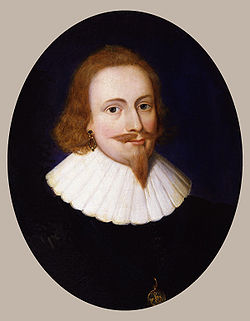King James I
This decade saw the country slipping more and more into a financial mess. This was due to incompetence and self serving amongst James’Â advisers. Tensions between pro catholic and pro protestant parties began to grow as well as the feeling that the King was under too much influence of a group of Catholic nobles.
Falling out with Parliament
With the finances of the nation getting worse, James summoned Parliament in 1610 and asked it to grant him money. In this period a monarch ruled the country and decided on foriegn policy BUT only had finite finacial resources. If the nations finances were poor or if they needed to go to war a King or Queen would summon Parlaiment who could then pass legislation to raise taxes.
In an attempt to persuade them to do this Salisbury (Cecil) tried to negotiate finance in exchange for some concessions from the crown. Negotiations did not go well and in the end James dissolved parliament. In 1614 there was another attempt to persuade parliament to grant him money but again this was unsuccessful. Dismissing it after a mere 8 weeks, James governed without parliament until 1621 by selling Earldoms and other gifts in exchange for finance from nobles and businessmen.
Some successes in World Trade
One area where James had success was in foreign trade. The East India Company was already in existence but James sent trade delegations to Japan and in 1613 managed to establish rights to trade directly with Japan.
James and Religion
After the Gunpowder plot James cracked down on religious dissent. This policy was applied both to Catholics and non conformist protestants. Individuals who refused to swear an oath of allegiance implying the pope had no authority were liable to prosecution. Those who took the oath however were tolerated particularly as the years went by and when the Howard party gained influence. In Scotland James tried to enforce the English system of Bishops on the Scots. Although in 1618 the Bishops forced through his Five Articles of Perth the changes were widely opposed and in this issue lay the seed for dispute between King and the church in Scotland that would come back to bite James’ son Charles in the future.
The one high point of James’ reign as regards religion was the attempt to sort out various errors and conflicts amounting from previous translations of the bible. These steps led to the publication of the King James Bible in 1611 which is still in widespread use today and considered a masterpiece.
Rumours about his sexuality
James was married and had many children. Yet rumours abounded of homosexuality. Part of this was because he showed little inclination to military pursuits – followed  a policy of peace with Spain and enjoyed academic pursuits. This is  shown in the witty phrase that did the rounds: Rex fuit Elizabeth, nunc est regina Jacobus(Elizabeth was King, now James is Queen) There is however some evidence of very close relations between James and Carr, and James and Villers. There was even a secret passage linking the later two bed chambers.
The Rise of Robert Carr
Robert Carr was a handsome and charming young nobleman when he came to London in 1601 accompanied by his close friend Overy.  Carr was injured in a joust and caught the eye of the king in 1606 and soon was drawn into the royal court. (Possibly this injury might have been staged to draw the King’s attention) Very soon he was a close friend and advisor to James. There are even rumours (see above) that James and he were lovers.
Death of Lord Salisbury
Until 1612 Robert Cecil – Lord Salisbury – administered the king’s court fairly efficiently. The problems began when Cecil died. James attempted to rule on his own but proved incapable of this. This left a power vacuum into which stepped the Howard Party and Robert Carr.
The Howard Party consisted of a group of generally catholic nobles who advocated alliance with spain and a marriage of Prince Charles to the Spanish Infanta.  They drew Robert Carr into their circle when Carr began an affair with Franes Howard – wife of the Earl of Essex. Such was the influence that Carr had over James that the king arranged a divorce for Frances so that Carr and she could marry.

Robert Carr was soon appointed James’ chief advisor – a role he was unfit for. Thus he relied upon his friend Overy to help with the administration. That was fine until Carr’s affair with Frances came to Overy’s attention.
The Carr/ Overy Scandal
Thomas Overy was a talented administrator who became close friends with Robert Carr and may have been instrumental in his rise to power. Although Carr held the reigns of power it was Overy who Carr relied on to help him with administration.
The Friendship came under immense strain when Overy found out about Carr’s affair with Frances Howard. Overy was opposed to this and even wrote a poem called The Wife in which he spoke of the virtues expected in a wife. This put him into direct conflict with Frances who manipulated matters so it appeared Overy had insulted the Queen. Overy was placed in the tower. In 1613 he died in mysterious circumstances and Carr and Howard remained in favour with the king.
In 1615 a Tower guard admitted that he has been taking poisoned food into Overy on the orders of Carr and Howard. Both were arrested and found guilty and kept in the Tower until 1622. For Carr the fall from power was complete.
Lord Villers
The Carr/Overy scandal had tarnished the reputation of the court and James turned to another close friend: Lord Villers.  Villers had been a friend of James since the kings coronation and again there are rumours of a sexual relationship here.  Villers became the figure behind which opposition to the Howard party and Carr focused and on the downfall of Carr, Villers managed to become the main advisor to King James. Villers started to extend his influnce over the young prince Charles as we enter the last few years of James’ reign.
The Thirty Years War 1618 to 1648
Towards the end of this decade a war began in central Europe which would involve most of the continent in some form or other over three decades. Its causes were complex and many nation’s involvement were due to other factors than the root cause. Nevertheless there was a simplex origin to the conflict in the beginning.
The Holy Roman Emperor Matthias was coming to end of his life (he died in 1619). Matthias had nominated the catholic Ferdinand (Later Ferdinand II) as his heir. This was opposed by the majority of the protestant Calvinist and Lutherans in Bohemia and Austria. These rose up in rebellion against Ferdinand. The Ottoman Empire – and enemy of the Catholic Hapsburgs of which Ferdinand was a member joined the war. The fighting raged back and forth but in 1619 Ferdinand was briefly deposed as Emperor in favour of the Protestant Frederick V of the Palatinate.
This war would have an effect felt in England. The Howard party and later Villers and James had been pursuing policies of friendship towards Catholic Spain BUT sentiment at home was anti-catholic and this war fuelled that feeling. Furhermore Frederick was James’ son in Law and thus he felt an obligation to try and do something to help. This would have a significant effect on the policies of James and Charles in the coming decade.
Issues that will run and run
In this decade we see James struggling with issues that would be a recurring theme in the coming quarter of a century and beyond:
- The conflict between the will of the monarch and of parliament.
- The conflict between a Protestant majority in the country and some catholic nobles who are seen to have too great an influence over the King
- Religious tensions between the established church and those who did not want rule by bishops both in England and Scotland.
- Financial difficulties
Coming Next week: the Spanish Match
Coming next week: 1620 to 1629
This article is one of a series connected with the release in August of the new paperback of The Last Seal my historical fantasy set during the Great Fire of 1666.






Related Articles
No user responded in this post